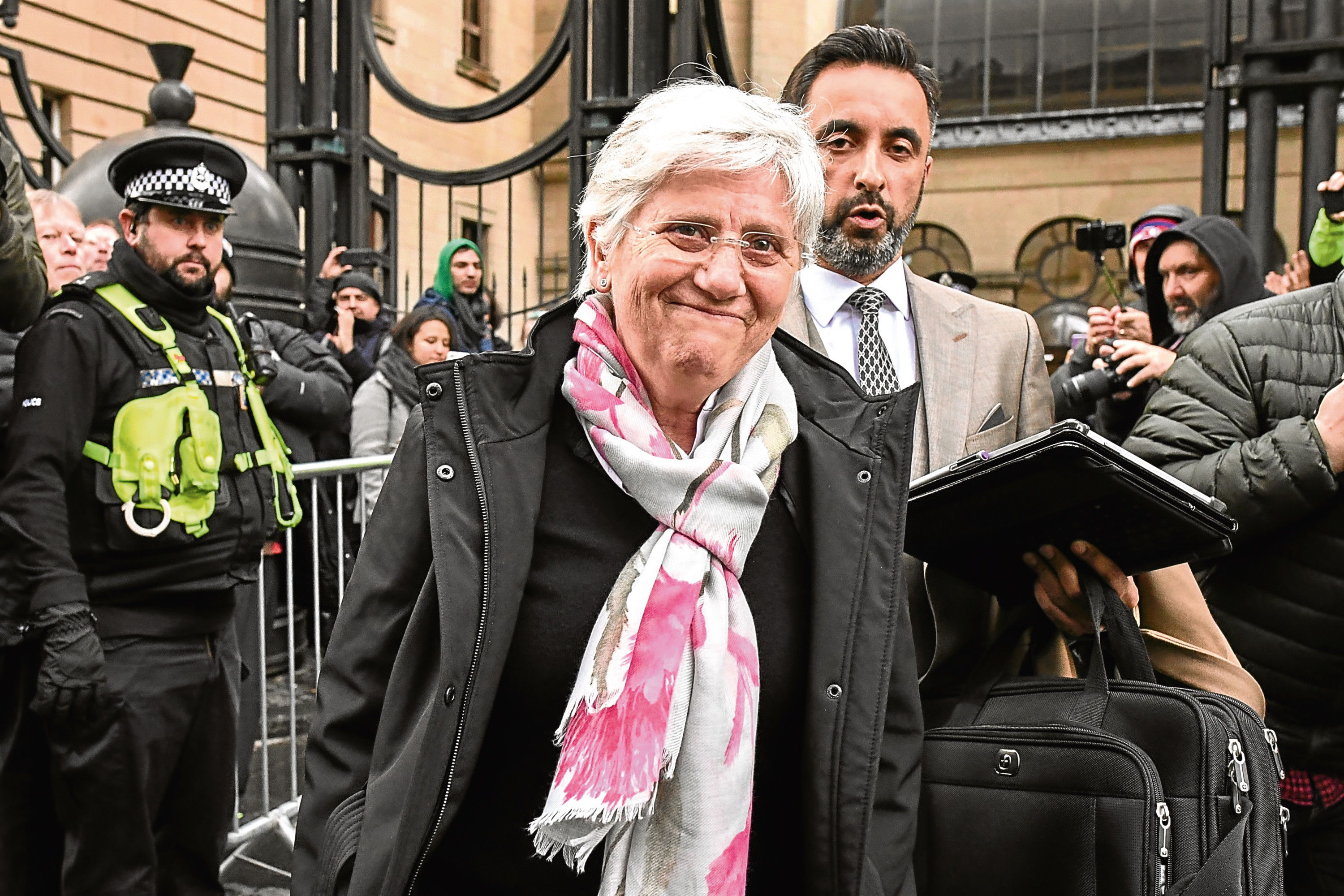
JUST as a 61-year-old St Andrews University economics professor was handing herself in to police in Edinburgh in response to a European Arrest Warrant, I was being interviewed by political heavyweight Adam Boulton on Sky.
We were sitting just half a mile from the police station where Clara Ponsati was relinquishing her passport as a condition of her bail as she prepares to fight attempts to force her back to Spain to face charges of, among other things, violent rebellion, sedition, misuse of public funds, and a possible jail sentence of up to 35 years.
This is a big story. An international story. But Boulton, in Scotland for the day, said that the UK media hadn’t really been following it. His comments echoed those of the BBC broadcaster, Jeremy Vine, who hadn’t even heard of Ponsati.
The remarks were telling because this isn’t a “Scottish” story. It’s one for us all.
What if Ponsati had not been an academic at a Scottish institution but, let’s say, an Oxford don? Would there then have been such a muted response?
Would Boris Johnson, as Foreign Secretary, really have resisted making comment about the forced exit of an academic from his own alma mater to face what many suspect are trumped-up charges in a foreign land? I think not.
So why are we here?
Ponsati is the most unlikely of radicals. A diminutive, white-haired academic at one of our most hallowed seats of learning who took a sabbatical to return to her native Catalonia to serve as education minister.
But the referendum, which led to a declaration of Catalonian independence from Spain and her subsequent appointment to government was deemed illegal. Direct rule was imposed and the parliament dissolved.
Several high-ranking members of the Catalan cabinet were jailed while others, including Carles Puigdemont, the Catalan leader, went into exile.
And Ponsati, who had fled back to Scotland, is now one of five former ministers named in warrants issued last week by Spain’s supreme court.
The prospect of an academic being forced back to Spain to be put on trial for her part in a peaceful, but illegal, referendum has appalled many supporters of Scottish independence who see parallels between Catalan separatism and their own cause.
But while the independence movement has done the heavy lifting in terms of garnering support for Ponsati, it has also unwittingly helped to parochialise and polarise her cause which has inevitably become mired in tribal politics.
Critics of heavy-handed political thuggery and persecution have been silenced by a wish to not add succour to one side of Scotland’s own constitutional tussle. And that is wrong.
Clara Ponsati faces a lifetime in a Spanish jail for nothing more than a belief in self-determination.
And while I’ll leave others, more qualified, to argue through the legalities of this case, there is a basic humanity at stake here which is being ignored by many of our politicians. That shames them.

Enjoy the convenience of having The Sunday Post delivered as a digital ePaper straight to your smartphone, tablet or computer.
Subscribe for only £5.49 a month and enjoy all the benefits of the printed paper as a digital replica.
Subscribe